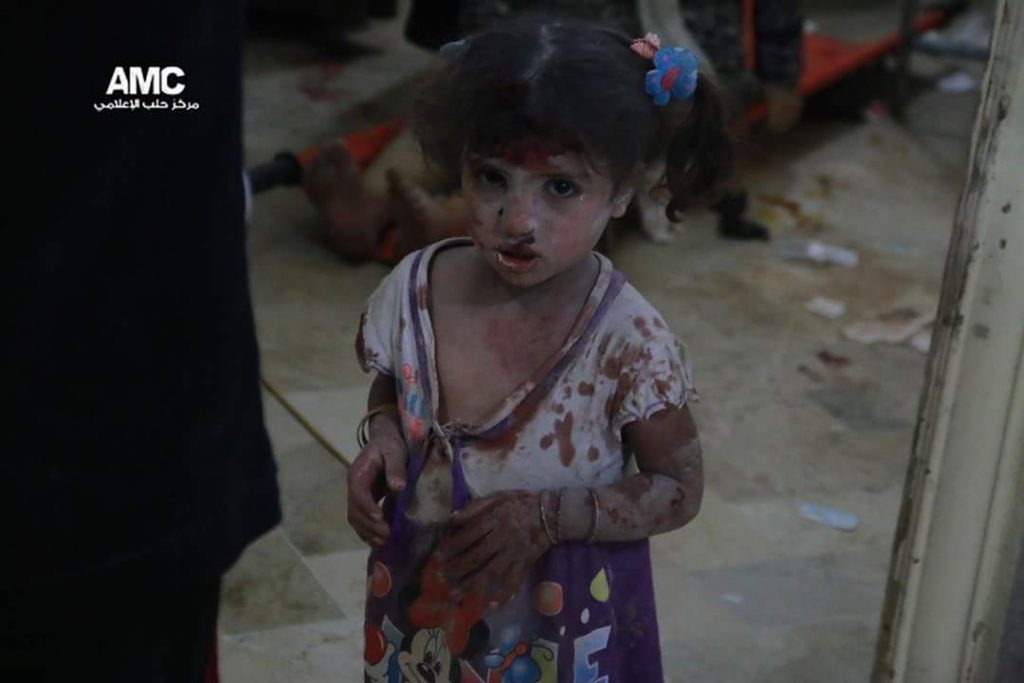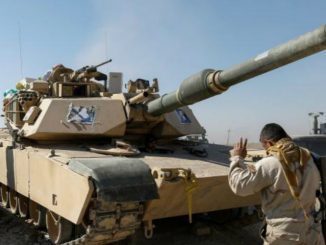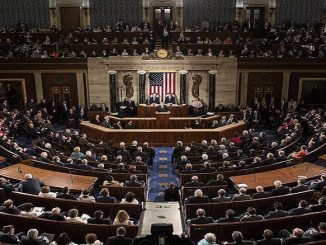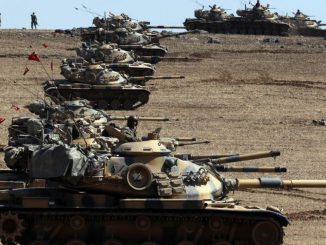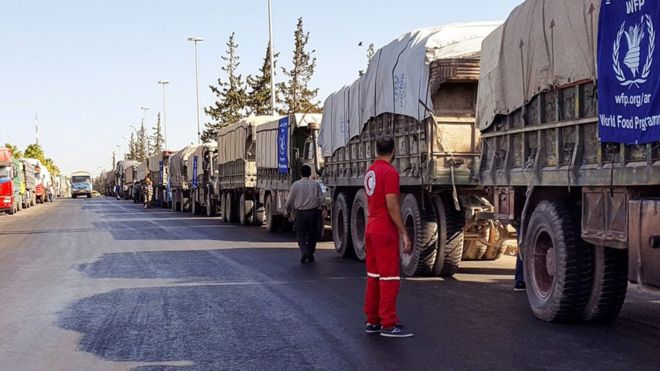
The United Nations is gearing up to resume aid deliveries in Syria suspended after a deadly attack on a relief convoy near Aleppo two days ago, officials said on Wednesday.
Air raids rocked northern Syria’s Aleppo province on Tuesday, hours after 18 lorries in the UN convoy were hit in the Uram al-Kubra district west of Aleppo city.
The Syrian Observatory for Human Rights said that the attacks were carried out by either Assad regime’s or Russian aircraft and at least 32 people were killed.
“The preparation for these convoys has now resumed and we are ready to deliver aid to besieged and hard-to-reach areas as soon as possible,” the U.N. Office for the Coordination of Humanitarian Affairs (OCHA) said in a statement.
“The United Nations continues to call for safe, unconditional, unimpeded and sustained access to all Syrians in need, wherever they are,” it said.
Elizabeth Hoff, World Health Organization (WHO) representative in Syria, told Reuters it was preparing medical supplies for delivery on Thursday to the Damascus suburb of Moadamiya subject to the normal security risk assessments.
At least 18 of 31 trucks in a U.N. and Syrian Arab Red Crescent (SARC) convoy were hit on Monday along with an SARC warehouse. The convoy was delivering aid for 78,000 people in the hard-to-reach town of Urm al-Kubra in Aleppo province.
The Syrian Arab Red Crescent (SARC) suspended operations in Aleppo province for three days following the attack. The attack killed a staff member and about 20 civilians. SARC has continued deliveries to other areas of Syria, officials say.
“For the time being we are assessing security in different areas. In the next 24 hours we won’t have any convoys across front lines,” said Krista Armstrong, spokeswoman for the International Committee of the Red Cross (ICRC).
“The teams are eager to get to the four towns, which we expect to be on Saturday.” She was referring to the rebel-besieged towns of Foua and Kefraya in Idlib and government-blockaded Madaya and Zabadani near the Lebanese border.

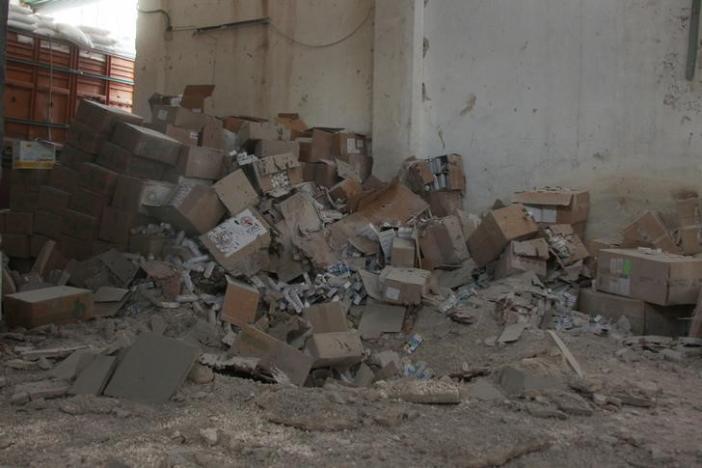
Dire situation in Aleppo
The residents in Aleppo said they are already suffering, and their situation will become worse if the aids were cut.
“Today the UN stopped the aid to the Syrian people. Our people are dying. We have not had aid come in for a very long time,” Ibrahim al-Hajj, a member of the all-volunteer rescue team known as the Syrian Civil Defence, who spoke to Al Jazeera from Aleppo. “My family and I have one week’s worth of stored food left, and after that, we will run out.”
“The attack deprives thousands of civilians of much-needed food and medical assistance,” said a statement issued by the International Federation of Red Cross and Red Crescent Societies. The statement described the incident as a “flagrant violation of international humanitarian law”.
“At least 47 Syrian civilians were killed on Monday: women, men and children as young as eight years old,” added al-Hajj, who accompanies rescue workers to the scene of every attack to document the details.
Marwa Taleb, a mother and resident living in the east of the city, says she “wishes the ceasefire was never implemented”. “They showed us the Eid ceasefire, and on Monday, they showed us hell. It was horrific. They were vicious and fanatic with their use of cluster bombs. You cannot imagine how much they bombarded us with cluster bombs,” Taleb told Al Jazeera, saying that the attacks took place on the street adjacent to her home.
“The ceasefire was good for the children because they were able to rejoice in Eid. But I wish it was never implemented. We became so desensitised to the bombardment that it has become a regular part of our lives,” continued Taleb. “So, when the shelling started again, the children became very aware of the difference.”
The Syrian crisis began as a peaceful demonstration against the injustice in Syria. Assad regime used to fire power and violence against the civilians and led to armed resistance. 450.000 Syrians lost their lives in the past five years according to UN estimates, and more than 12 million have lost their homes. Sy

